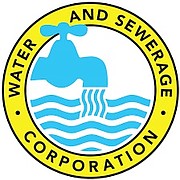By NEIL HARTNELL
Tribune Business Editor
nhartnell@tribunemedia.net
The Water & Sewerage Corporation’s debt to its main BISX-listed supplier was slashed by $7.4m in April 2019, financial filings have revealed, with the balance owing cut to $11.6m.
However Consolidated Water, the New Providence reverse osmosis plant operator, continues to describe its relationship with the state-owned utility as a material “risk factor” that could result in its Bahamian operations having “insufficient liquidity” and cash flow to maintain normal operations.
Such a situation, should it ever occur, would have the potential to disrupt water supply to the Water & Sewerage Corporation’s New Providence customers given that it relies entirely on Consolidated Water’s Blue Hills and Windsor reverse osmosis plants for this.
To prevent such an outcome, Consolidated Water’s latest 10-Q quarterly filing, submitted to the Securities & Exchange Commission (SEC) on Friday, said the parent Nasdaq-listed company would provide funding to its Bahamian subsidiary should the liquidity/cash flow position become critical.
And, while emphasising that it had always been able to collect the Water & Sewerage Corporation debts owed to it, Consolidated Water revealed that 75 percent of the $16.9m owed to it an end-March 2019 had been “delinquent” - meaning that some $12.6m was 90 days or more past due.
This pressure has been eased by the $7.4m payment following the 2019 first quarter’s end but, in the section “risk factors”, the BISX-listed water supplier said: “Periodically, our Bahamas subsidiary experiences substantial delays in the collection of its accounts receivable. As a result, our Bahamas subsidiary could have insufficient liquidity to continue operations, and our consolidated results of operations could be materially adversely affected.
“Consolidated Water Bahamas’ accounts receivable balances due from the Water and Sewerage Corporation of The Bahamas amounted to $16.9m as of March 31, 2019, and $17.6m as of December 31, 2018. Approximately 75 percent of the March 31, 2019 accounts receivable balance was delinquent as of that date. The delay in collecting these accounts receivable has adversely impacted the liquidity of this subsidiary.”
Still, expressing confidence that it would not have to take a provision because of the Water and Sewerage Corporation debts, Consolidated Water added: “Historically, Consolidated Water Bahamas has experienced delays in collecting its accounts receivable from the Water and Sewerage Corporation .
“When these delays occur, we hold discussions and meetings with representatives of the Water and Sewerage Corporation and The Bahamas government and, as a result, payment schedules are developed for Water and Sewerage Corporation ‘s delinquent accounts receivable. All previous delinquent accounts receivable from the Water and Sewerage Corporation were eventually paid in full.
“Based upon this payment history, Consolidated Water Bahamas has never been required to provide an allowance for doubtful accounts for any of its accounts receivable, despite the periodic accumulation of significant delinquent balances. As of March 31, 2019, we have not provided an allowance for Consolidated Water Bahamas’ accounts receivable from the Water and Sewerage Corporation.”
Confirming the payment received post-March end, the BISX-listed supplier said: “Consolidated Water Bahamas received approximately $7.4m in payments on its accounts receivable in April 2019 and, as of April 30, 2019, its accounts receivable balance from the Water and Sewerage Corporation was approximately $11.6m.
“If Consolidated Water Bahamas continues to be unable to collect a significant portion of its delinquent accounts receivable, one or more of the following events may occur: Consolidated Water Bahamas may not have sufficient liquidity to meet its obligations without new funding from its shareholders.
“We may be required to cease the recognition of revenues on Consolidated Water Bahamas’ water supply agreements with the Water and Sewerage Corporation; and we may be required to provide an allowance for Consolidated Water Bahamas’ accounts receivable. Any of these events could have a material adverse impact on our results of operations, financial position and cash flows.”
Adrian Gibson, the Water & Sewerage Corporation’s executive chairman, did not return Tribune Business’s phone calls and messages seeking comment yesterday. It is unclear where the $7.4m to reduce the Water and Sewerage Corporation’s debt came from, but there is every likelihood it came from the Public Treasury and Bahamian taxpayer.
The reason for the Water and Sewerage Corporation’s inability to make timely, in-full payments to its main water supplier is set out in a recent Inter-American Development Bank (IDB) report that confirms the state-owned utility is selling water massively below cost to its customers - resulting in the Treasury/taxpayers having to subsidise it./
“The country’s national agency, Water and Sewerage Corporation (WSC), supplies less than 50 percent of overall potable water demand in The Bahamas. Currently, only 14 percent of the population has access to improved sewerage and sanitation facilities,” the IDB report said.
“No tariff adjustments have been granted for several years, and current tariffs presently represent about 60 percent of the cost of service in New Providence, and only 30 percent in the Family Islands (where the cost of service provision is higher and the tariff lower than in New Providence).”
As a result, the IDB warns that the benefits from reducing water leaks and losses from the Water & Sewerage Corporation’s system by 60 percent could be lost if there is no tariff rebalancing.





Comments
Use the comment form below to begin a discussion about this content.
Sign in to comment
OpenID